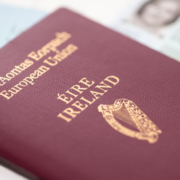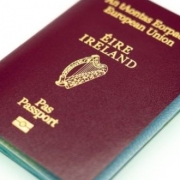HIGH COURT JUDGEMENT REGARDING EUTR DEPENDENT PARENT CASE; DAR AND THE MINISTER FOR JUSTICE AND EQUALITY
Judgement was delivered by Mr Justice Max Barrett in the matter of Shakeel Ahmed Dar and the Minister for Justice and Equality, on the 19th January 2021. The facts of the case are set out below.
Mr Dar is a UK national, who has been living and working in Ireland since 2004. Mr Dar resides with his wife, and operates a business in the State. In 2016, Mrs Kauser, Mr Dar’s mother, travelled to Ireland on foot of a visa, intending to visit her son and family, and return to Pakistan. After arriving in Ireland, Mr Dar deemed it was in his mother’s best interests to remain with him in the State. An application for an EU Residence card on the basis of dependency was submitted to the Minister for Justice (“the Minister”) in line with the EC (Free Movement of Persons) Regulations 2015 (“the 2015 Regulations”), under cover letter dated 25th August 2016.
A temporary permission to reside on the basis of Stamp 4 was issued to Mrs Kauser, for a period of 6 months, pending the determination of the residency application, as is now standard practice from the Department for Justice (“the Dept.”). Through various back and forth correspondence between the two parties, further documents were requested by the Dept. and submitted in turn by the Applicants. Further temporary permissions were issued to the applicant during the processing of the application.
By letter dated 12th June 2017, the EU residence application was rejected on the grounds that the necessary evidence of dependence had not been submitted. An application appealing the decision was submitted on 23rd June 2017.
The Appeal was refused in December 2018. Judicial Review proceedings were issued in March 2019. The matter was settled, the decision of December 2018 was withdrawn, allowing for reconsideration of the application. Further submissions and proofs were made to the Minister in support of the application. The application was again refused by the Minister in August 2019. The applicant again sought to review the decision of the Minister.
The issue put to the Court for consideration being did the respondent err in law and/or act in breach of European Union law in applying the incorrect test for establishing Mrs Kauser’s dependency on her EU Citizen son. The Court referred to the approach on dependency taken in cases Kuhn v Minister for Justice [2013}; Subhan and Ali v. Minister for Justice and Equality [2019] IECA 330; Ali Agha v. Minister for Justice and Equality [2019] IEHC 883, among others, and the recent Court of Appeal Judgment in Shishu and Miah v. MJE [2021] IECA 1, in its consideration of the issue presented. Considerable weight was given to the test for dependency of K v. MJE [2019] IECA 232 which stated “an applicant must show, in the light of his financial and social conditions, a real and not temporary dependence on a Union citizen”.
Mr Justice Barrett stated “Where the court considers that, with respect, the Minister erred was not so much in what she positively did but in what she did not positively do, i.e. the Minister (i) failed to have any, or any proper, regard to, and (ii) failed to reach a reasoned decision in respect of, the emotional and social dependence which exists between the applicant and his mother, a non-EU/EEA woman in her seventies who resides, and has now for some years resided in her son’s home”.
Mr Justice Barrett noted, in his Judgment, that there is nothing objectionable about the conclusion reached by the Minister as to the want of financial documentation. Mr Justice Barrett stated that “It does not matter whether or not the court agrees with the Minister in this regard: she was entitled to and did reach that conclusion properly by reference to the documentation that was before her.”
Mr Justice Barrett further noted that “The court respectfully does not accept the proposition that because a mother is living with her adult son it follows, ipso facto, that she is dependent upon that son.”
The court granted the order of certiorari sought, quashing the decision of the Minister for Justice, and remitting the matter to the Minister for fresh consideration.
Of particular note in this Judgement is the Court’s remarks on the fact that the decision to reject the application at first instance, was essentially for want of further documentation in support of the applicants claim for dependency. The Court noted that when the matter was settled and further submissions in support of the applicants’ claim of dependency, were submitted, that the applicant “did not go to the ‘nth degree”. This highlights the importance of keeping the Minister apprised of any updates in an applicant’s circumstances, and continuing to submit documentation, while an application is pending.
If you are submitting an application for a dependent family member under EU Treaty Rights law, Berkeley Solicitors has a lot of experience in these applications and we would be happy to advise.









